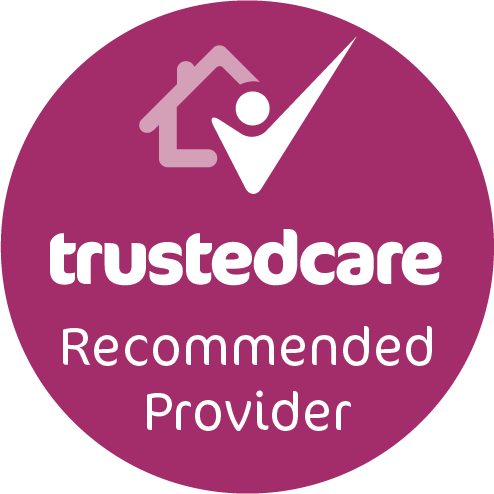Who is domiciliary care for?
Domiciliary care is for those who need extra help with personal care or household tasks in order to stay in the comfort of their own home. A residential care home might come to mind when the home environment becomes unsafe. However, there are multiple benefits to staying at home, including the advantages for a person’s mental health. Benefits include staying in loved and familiar surroundings; no change of routine; no impact on the person’s independence; no change in local community, nearby friends or regular activities; and flexible, bespoke care plans.
Domiciliary care can be appropriate for children, young people, adults or the elderly, supporting those with permanent or temporary care needs. Whether it is care for those with dementia or Parkinson’s, or multiple sclerosis care — there is very little disruption and no loss of security.
What is the role of a domiciliary care worker?
Although the work is varied and the clients’ needs differ, domiciliary care workers (also known as home carers) help to keep people living in the comfort of their own homes, with some extra support. Usually, carers with domiciliary care duties will be looking after those with disabilities, palliative care needs or, perhaps, less intensive care requirements.
Their role is tailored to the needs of the individual, helping to maintain their dignity and independence, and can include:
- Personal care
- Conversation and friendship
- Making meals
- Household tasks
- Errands
- Administering medication
Domiciliary care vs live-in care
A domiciliary care service is provided locally to a client in their own home. It’s also known as hourly care because carers live in their own homes and visit the client for a certain number of hours on the agreed-upon days.
Live-in care is another popular alternative to a residential care home because it allows the client to remain in their own home and to receive one-on-one care, in the comfort of familiar surroundings. And because the carer lives in the client’s home, somebody is on hand 24/7 should care be needed, just like in a care home.
Three key benefits of live-in care include:
- One to one care can promote better health outcomes
- Care is responsive and proactive
- A cost effective solution
In comparison to residential homes, live-in care can also be more affordable than people perceive, especially when couples are looked after together. Rather than being charged twice, it’s merely a slight increase in cost.
Live-in care at home
Depending on your chosen provider and level of care, our live-in care services generally include:
- Support at nighttime
- Planning, shopping and cooking balanced meals
- Light housework
- Laundry and ironing
- Mobility and personal safety
- Dressing, hair and make-up or shaving
- Support with personal care and continence
- Managing and prompting medication
- Personal admin, correspondence and help with day-to-day finances
- Managing appointments, such as GP or hairdresser
- Trips out of the house to appointments, shopping or social outings (many carers will act as drivers)
- Answering the door and phone
- Companionship and emotional support
- Providing peace of mind for both clients and family members
What type of care provider is ENA Care Group?
ENA Care Group is a full management live-in care provider, we alleviate our clients and their families from making day to day arrangements of care. We hire and train our own carers directly, overseeing all aspects of care, both long-term and day-to-day. This includes continuous risk assessment at intervals throughout the year and client-carer matching, to personalised care plans, staff schedules and administration such as carer pay, tax and so on. With oversight, reviews and 24/7 support, our clients have choice as to how much of a managed care service is preferable. An ideal option for families who have limited time to manage the care.
As a full Full management care provider, we are subject to regulation in England by the Care Quality Commission (CQC), the independent body that inspects and maintains standards within the industry. There are equivalent bodies responsible for service regulation in Wales, Scotland and Northern Ireland. They are: Social Care and Social Work Improvement Scotland (SCSWIS), The Care and Social Services Inspectorate Wales (CSSIW) and for Northern Ireland: The Regulation and Quality Improvement Authority (RQIA). We as a leading live-in care provider in the United Kingdom, are committed to ensuring our care is safe, caring, responsive, effective and well led.
















